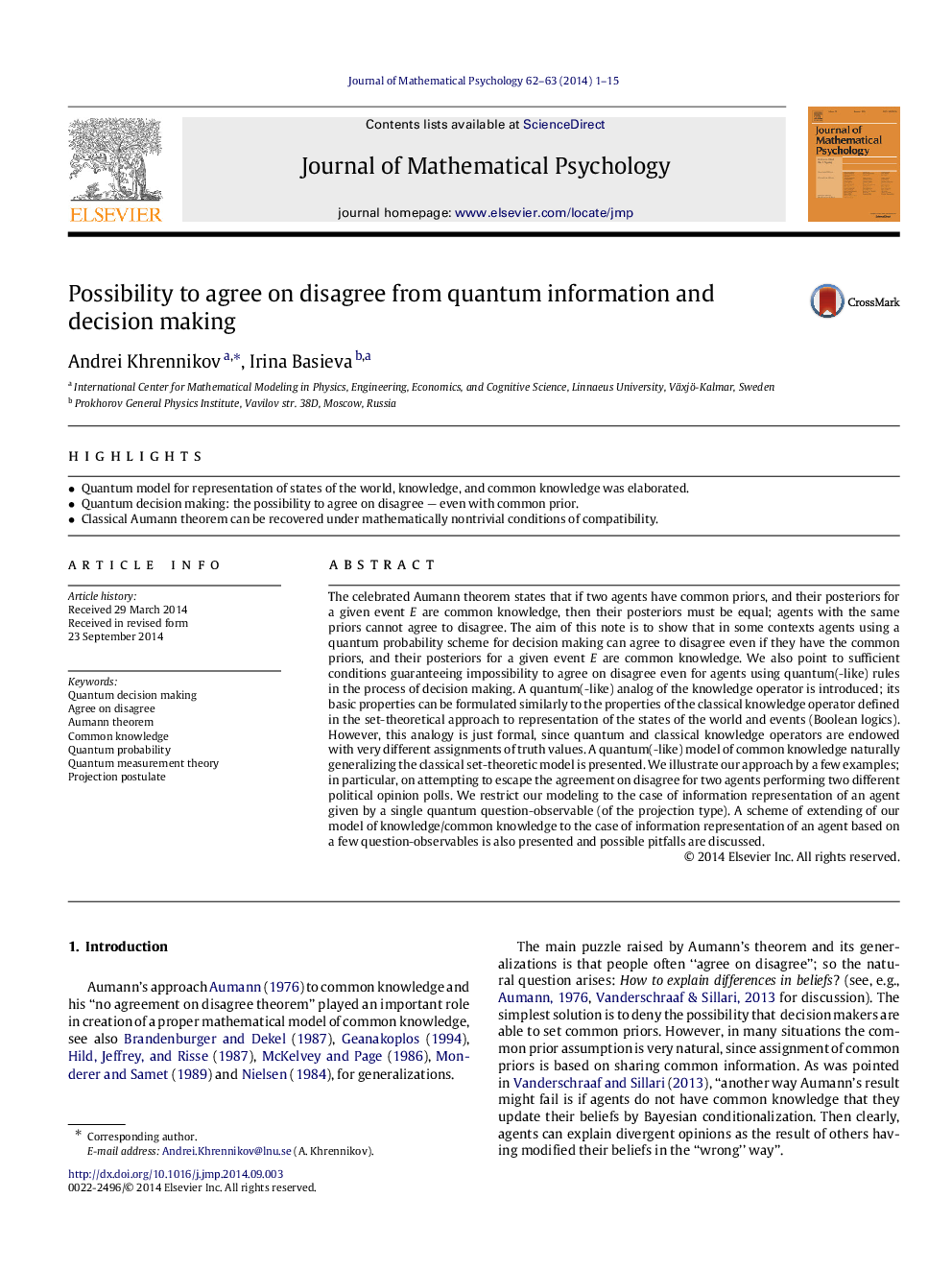| کد مقاله | کد نشریه | سال انتشار | مقاله انگلیسی | نسخه تمام متن |
|---|---|---|---|---|
| 6799357 | 542409 | 2014 | 15 صفحه PDF | دانلود رایگان |
عنوان انگلیسی مقاله ISI
Possibility to agree on disagree from quantum information and decision making
ترجمه فارسی عنوان
امکان توافق در مورد اختلاف نظر از اطلاعات کوانتومی و تصمیم گیری
دانلود مقاله + سفارش ترجمه
دانلود مقاله ISI انگلیسی
رایگان برای ایرانیان
کلمات کلیدی
موضوعات مرتبط
مهندسی و علوم پایه
ریاضیات
ریاضیات کاربردی
چکیده انگلیسی
The celebrated Aumann theorem states that if two agents have common priors, and their posteriors for a given event E are common knowledge, then their posteriors must be equal; agents with the same priors cannot agree to disagree. The aim of this note is to show that in some contexts agents using a quantum probability scheme for decision making can agree to disagree even if they have the common priors, and their posteriors for a given event E are common knowledge. We also point to sufficient conditions guaranteeing impossibility to agree on disagree even for agents using quantum(-like) rules in the process of decision making. A quantum(-like) analog of the knowledge operator is introduced; its basic properties can be formulated similarly to the properties of the classical knowledge operator defined in the set-theoretical approach to representation of the states of the world and events (Boolean logics). However, this analogy is just formal, since quantum and classical knowledge operators are endowed with very different assignments of truth values. A quantum(-like) model of common knowledge naturally generalizing the classical set-theoretic model is presented. We illustrate our approach by a few examples; in particular, on attempting to escape the agreement on disagree for two agents performing two different political opinion polls. We restrict our modeling to the case of information representation of an agent given by a single quantum question-observable (of the projection type). A scheme of extending of our model of knowledge/common knowledge to the case of information representation of an agent based on a few question-observables is also presented and possible pitfalls are discussed.
ناشر
Database: Elsevier - ScienceDirect (ساینس دایرکت)
Journal: Journal of Mathematical Psychology - Volumes 62â63, OctoberâDecember 2014, Pages 1-15
Journal: Journal of Mathematical Psychology - Volumes 62â63, OctoberâDecember 2014, Pages 1-15
نویسندگان
Andrei Khrennikov, Irina Basieva,
